Find a Job You Really Want In
Survey summary. In the United States, hard work is championed as the ultimate ideal. It’s no wonder that so many Americans feel guilty whenever they need to take time off from their job. We got responses from 217 verified, active job seekers on Zippia about their thoughts on taking time off from work. Our survey found that:
-
61.3% of Americans feel guilty about taking time off work.
-
Female workers are 20% more likely to feel guilty about taking time off work than male workers.
-
People are 58% more likely to feel guilty about taking a sick day than a vacation.
-
Workers’ #1 concern when taking time off is falling behind on projects.
-
America’s oldest workers are the most likely to feel guilty about taking time off from work — over 2/3 of workers aged 56+ feel guilty taking time off.
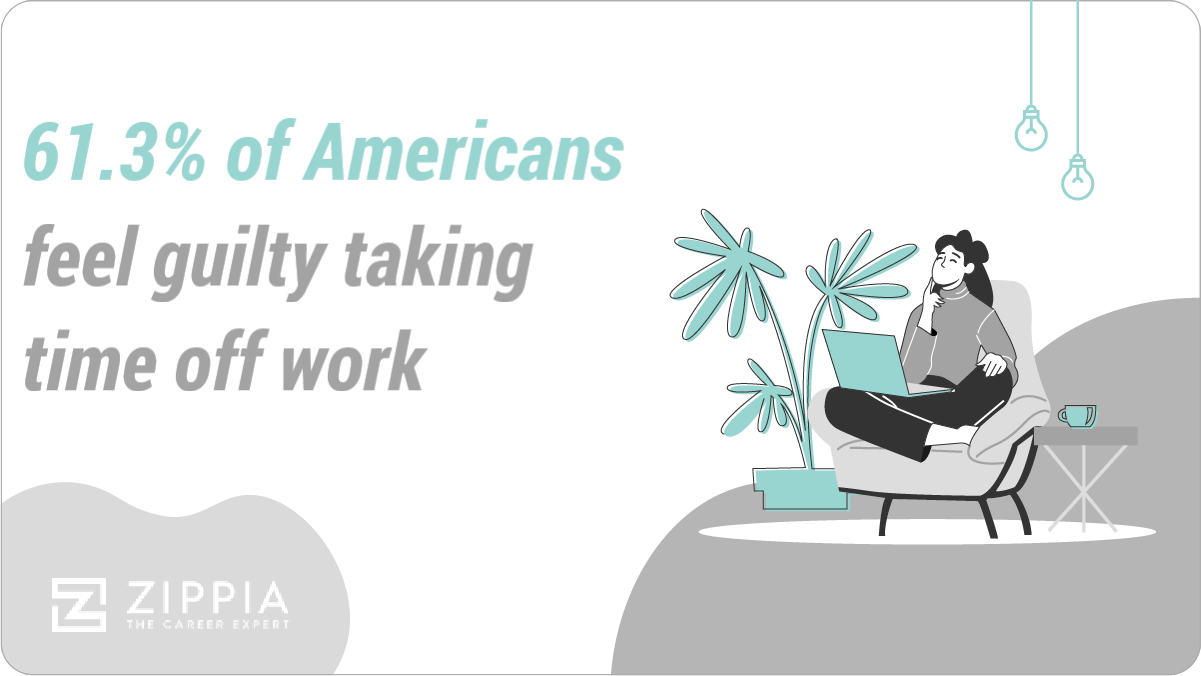
-
65.4% of women feel guilty about taking time off from work, compared with 54.5% of men.
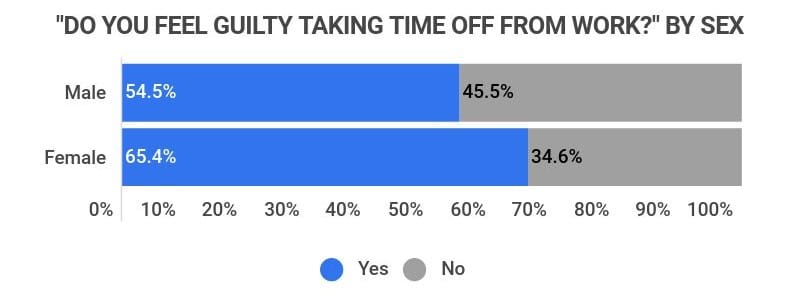
Nearly two-thirds of female respondents reported feeling guilty about taking time off from work. It’s not surprising – The Wall Street Journal reported that women are more concerned about “burdening other people with their requests” in the workplace, so it makes sense that this also applies to requests for time off.
-
People feel less guilty about time-off requests as they age – until their senior years.
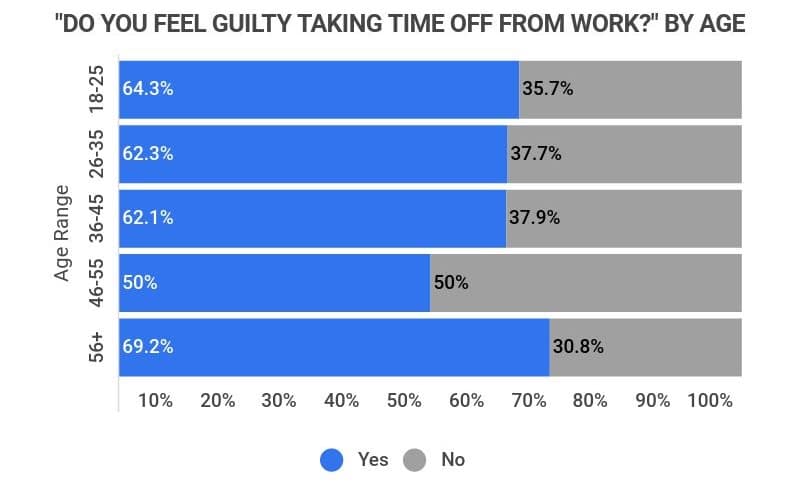
Newer employees are more eager to please, which means they’re also more anxious about taking time away from work. That might help explain why they’re more prone to feel guilty about taking time off than their more senior counterparts.
Folks who have been around the block for a while understand that there’s no reason to feel guilty about taking time off. Only half of the respondents between 46-55 feel bad about it. However, workers aged 56+ are the guiltiest bunch, perhaps due to stereotypes and age discrimination.
Age Range Yes No 18-25 64.3% 35.7% 26-35 62.3% 37.7% 36-45 62.1% 37.9% 46-55 50% 50% 56+ 69.2% 30.8% -
Illness is the most common reason to take time off from work, and only 4.1% of respondents claim that they “don’t take time off.”
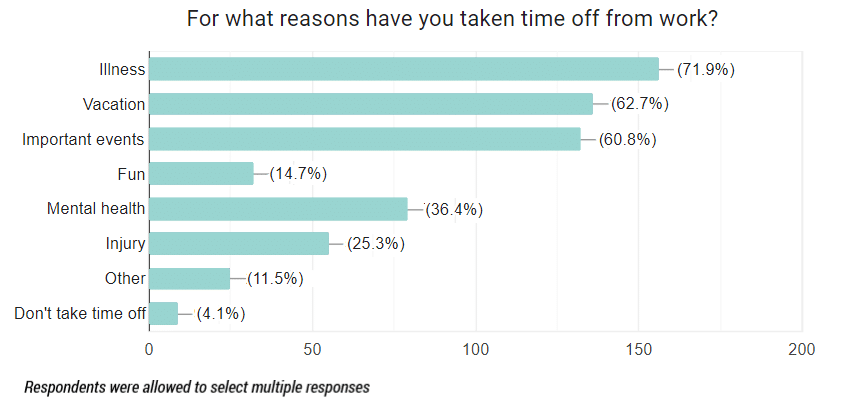
71.9% of workers have taken time off from work for a sickness, which actually seems a bit low. But when you look at how many Americans feel guilty about taking a sick day, it starts to make sense.
Vacation is the next most common reason, with about 6 in 10 workers taking a break from work purely to go on a trip and relax.
Important life events – weddings, funerals, graduations, etc. – are the third-most common reason why people take off from work.
Mental health days are also quite common; about a third of workers have taken one.
Reason Share of respondents Illness 71.9% Vacation 62.7% Important events 60.8% Mental health 36.4% Injury 25.3% Fun 14.7% Other 11.5% Don’t take time off 4.1% -
35% of workers have called out sick from work when they weren’t actually sick.
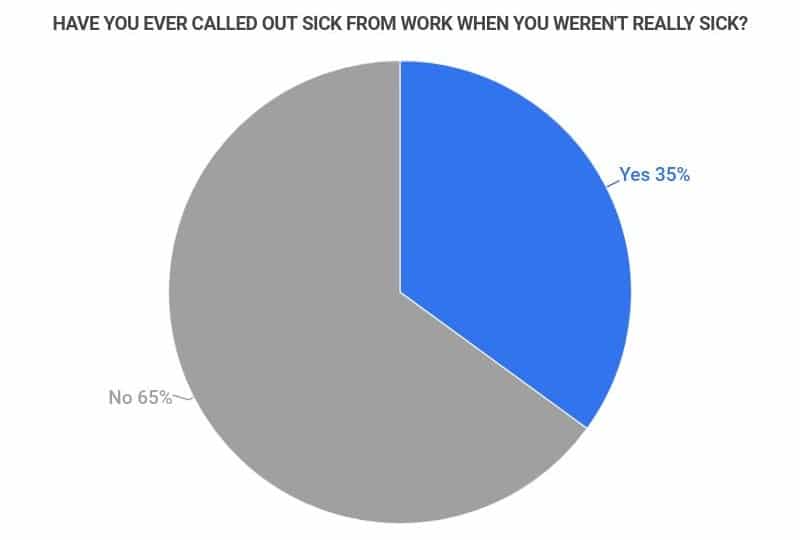
And that’s just respondents who admit to the practice. In fairness, if a worker feels the need to lie about why they need time off, it probably reflects worse on the employer than the employee.
-
31% of workers fear falling behind when they take time off.
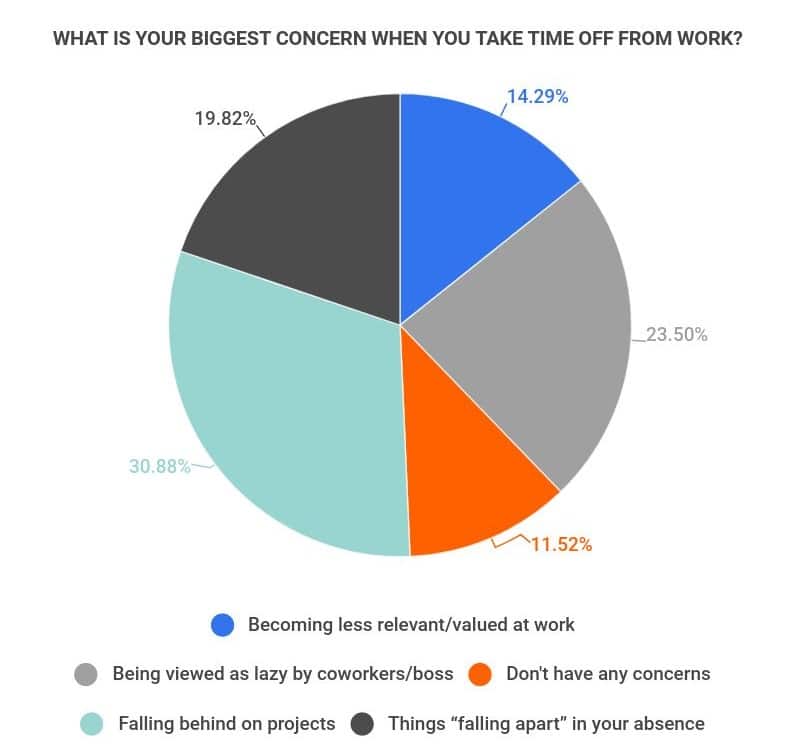
It’s the most common concern that people have. The least common concern is no concerns, with only 11.5% of respondents able to enjoy their time off worry-free.
Concern Share of respondents Falling behind on projects 30.9% Being viewed as lazy by coworkers/boss 23.5% Things “falling apart” in your absence 19.8% Becoming less relevant/valued at work 14.3% Don’t have any concerns 11.5% -
53.9% of workers leave paid vacation on the table at year-end.
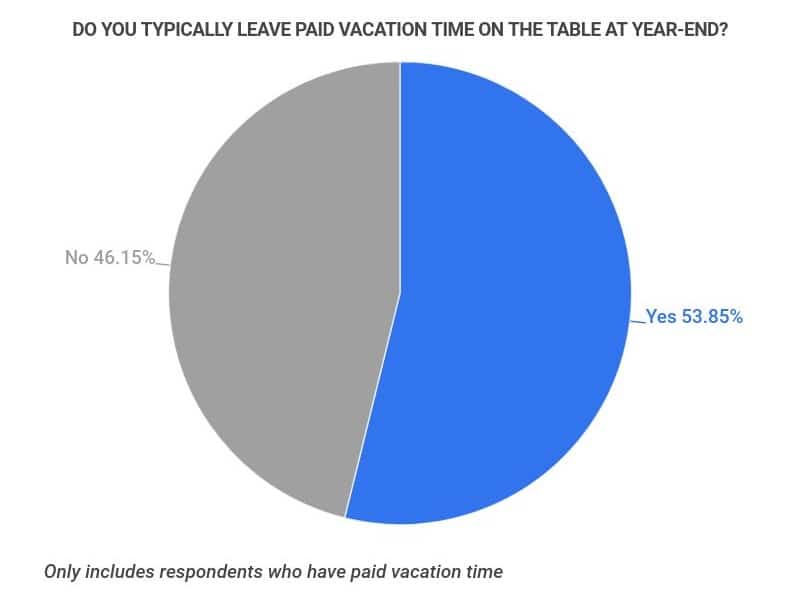
More than half of respondents with access to paid vacation policies report leaving some of their PTO unused each year.
-
61.3% of respondents are more likely to feel guilty about taking a sick day than a vacation day.
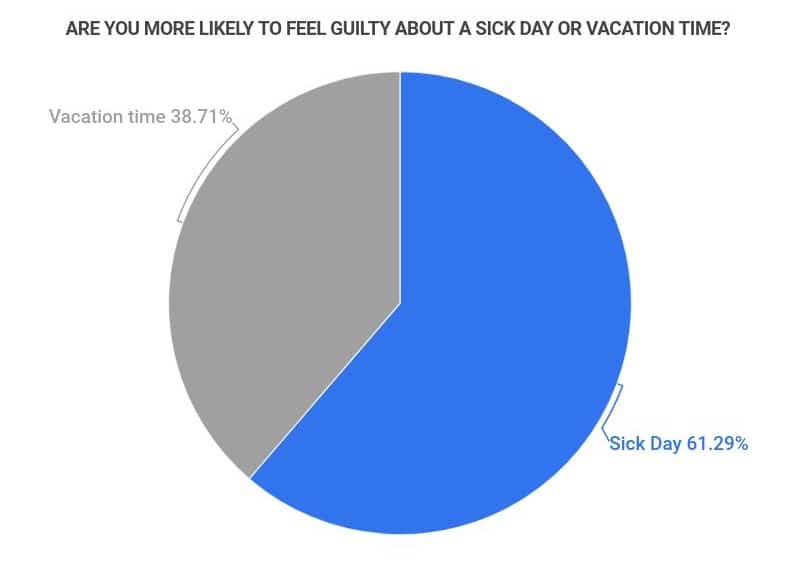
That means nearly 60% more people feel bad about being sick than taking a vacation.
It could be that employees simply feel less in control when they need to call out sick, and more like they’re leaving their coworkers in the lurch. With a vacation, at least you have the peace of mind of having a plan in place for everyone in your absence.
-
Most workers don’t feel their employer encourages them to take a healthy amount of time off.
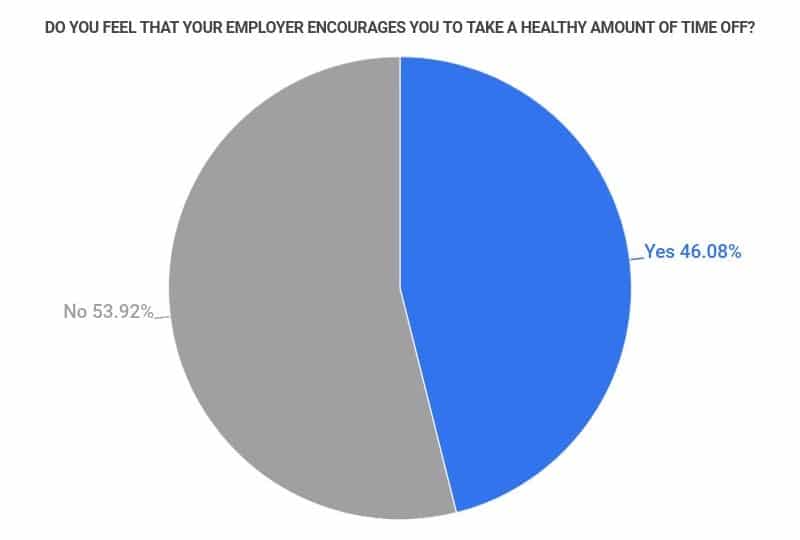
54% of respondents stated that their employer did not encourage them to take time off, either verbally or by leading through example.





